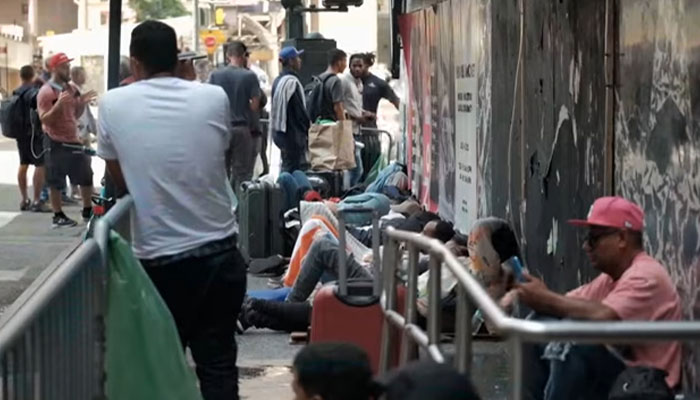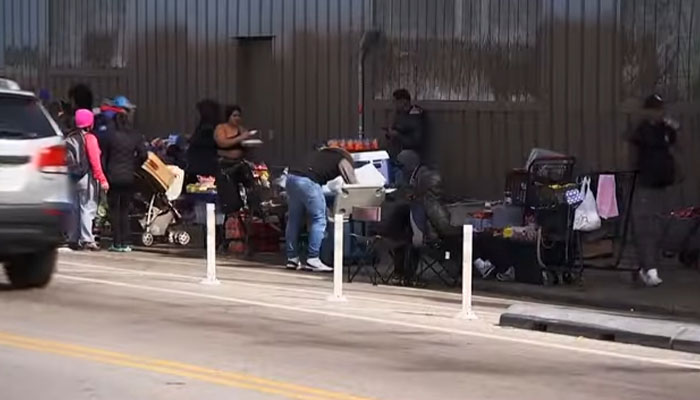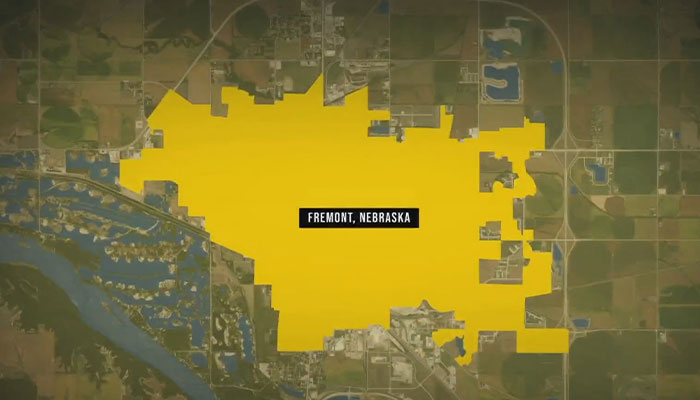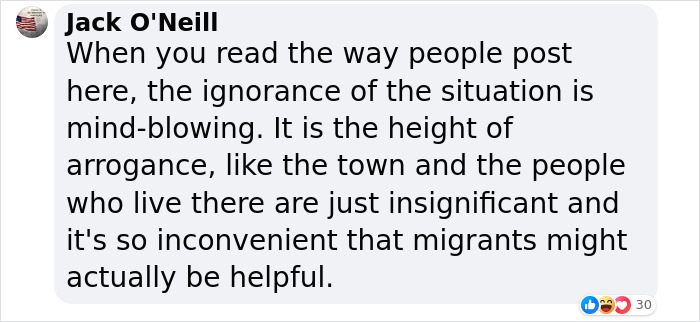Fremont, a city with a population of around 27,000 in Nebraska, USA, is facing a paradox. On one hand, it has three massive meat-processing plants that demandworkers. On the other hand, locals don’t want to do the job, andimmigrantsaren’t exactly welcomed with open arms.
In 2010, residents voted 57% to 43% to require that all people renting a property in Fremont must first sign a declaration that they are legally present in the U.S.
HighlightsFremont’s anti-immigrant law insists renters in Fremont declare their legal U.S. status, impacting immigrant workers.Despite opposition, local businesses depend on the immigrant workforce for growth.The town sees a demographic shift with a growing Latino population, now at 16%.
“The city’s citizens asked the city council to do something because it was pretty obvious that we had just become a haven for illegals,” city council member Paul Von Behren said.
Residents of Fremont, a small city in Nebraska, USA, voted to bar undocumented migrants from living within city limits

Image credits:WCNC
The town, which used to have a nearly all-white population, is changing its demographic characteristics. By 2022, Fermont had become 16%Latino, according to census data, and that number has since grown.
Most Latinos arrive from Guatemala. 40% of them speak an Indigenous language called Kʼicheʼ, community organizer Antonio Lopez explained.
Slaughterhouses, in particular, have been attracting immigrantworkers, especially afterCostcoopened a massive rotisserie chicken facility in 2019.
Brenda Ray, who has lived in Fermont for four decades, voted for the ordinance in 2010— formally known asOrdinance 5165—that tries to bar undocumented migrants from living within city limits.
Ray toldNBC Newsthat she doesn’t “have a problem” with the Central American immigrants as long as “they are legal and they come in to speak American English.”
The town’s meat-processing industry demands workers, but locals are leaving in search of higher-paying jobs

“We need these people,” Mark Jensen, president of the city council, acknowledged.
“We need this work done. This is what feeds the nation and the world.”
Immigrant workers feel a sense of gratitude towards theiremployers. Vicente Hernandez, a pastor at one of the local Guatemalan churches, says his compatriots make their jobs at the slaughterhouses a frequent topic of prayer.
Vicente himself works at one of Fremont’s slaughterhouses, cleaning the kill floor on the overnight shift.
“I tell them that we have to give thanks because God has put in men who have companies,” Vicente’s wife Maria, also a pastor at the church, said.
“If it weren’t for these companies, we wouldn’t have a job.”
“With Hispanic migrants, although it is hard, although it is heavy, they endure,” Vicente, who only gets three hours of sleep a night, explained.
“With Hispanic migrants, although it is hard, although it is heavy, they endure,” Vicente Hernandez, who immigrated from Guatemala, said

Even the president of the city council admitted that these “very physical jobs” are losing appeal among locals over time.
He said: “A lot of it’s hard work. And it’s not something that a lot of people can do.”
Many Central American immigrants who have settled in Fermont reside in a mobile home neighborhood less than five minutes from the city’s plants.
The workers brought a piece of home with them, setting up shops offering Latino foods and traditional Guatemalan clothing.
Immigrants who need to rent housing keep showing up at the city hall to sign declarations that they are in the US legally and pay $5 for an occupancy license, NBC reports. Still,there’s no legal obligation for applicants seeking occupancy licenses to present evidence of their legal presence in the country, the network adds.
Some businesses have provided immigrant workers with English lessons to reward their hard work

Despite bringing multiple economic benefits, the changing landscape of the small Nebraskan town has stirred up opposition from many locals.
“Just the sheer pressure of bringing in numbers of people has resulted in a considerable burden to the taxpayers,” Von Behren, a member of the city council, expressed.
Meanwhile, others have given the new residents a helping hand. For instance, a schoolteacher has begun learning K’iche’ to improve communication with Guatemalan students and parents.
Similarly, Jessica Kolterman, a director at Costco’s local chicken plant, said that her company provides immigrants with English lessons as a reward for their hardwork.
“If you come into this team and you want to work hard and grow, that opportunity is there in front of you,” Kolterman said.
People voiced their opinions regarding the situation in Fremont





 You May LikeDisney Worker Downloads Free AI Tool—Loses Job And $200,000 BonusesLei RV“Don’t Include This”: Résumé Writing Pro Goes Viral For Sharing Mistakes People Still Make In 2025Renan DuarteGene Hackman And Wife’s Bombshell Autopsy Report Reveals Cause Of Passing Related To RatsLei RV
You May LikeDisney Worker Downloads Free AI Tool—Loses Job And $200,000 BonusesLei RV“Don’t Include This”: Résumé Writing Pro Goes Viral For Sharing Mistakes People Still Make In 2025Renan DuarteGene Hackman And Wife’s Bombshell Autopsy Report Reveals Cause Of Passing Related To RatsLei RV
Lei RV
Renan Duarte
News